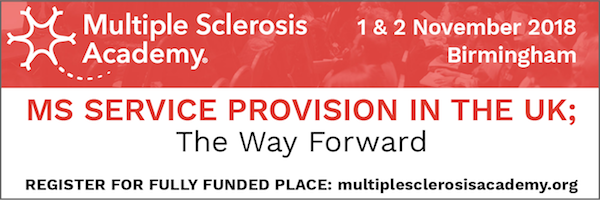
Access to services for people with multiple sclerosis (MS) is well known to be varied, with phrases like ‘postcode lottery’ and ‘patchy’ commonly used to describe people’s access to the care and support that they need.
Anecdotally known of for some time, recent evidence now highlights not just the variation, but the impact it has on the lives of people with MS – and the NHS budgets supporting them. National charities the MS Society and the MS Trust, as well as the Royal College of Physicians have all carried out research in this area lately. The problem took centre stage at the Association of British Neurologists’ annual conference this year when data was presented from NHS England’s Bluteq database, which vets and tracks the prescribing of high-cost drugs.
This variance in NHS services leads to less than optimal care for people with MS and causes frustration amongst the professionals supporting them as they come up against barriers to improving outcomes for their patients. Most well-documented, and highlighted by the Bluteq findings, is the varied access to different disease-modifying treatments. These can revolutionise someone’s lived experience of relapsing-remitting MS, and l improve their quality of life, reducing their relapses noticeably.
The Neurology Academy is hosting an initial meeting to address variance, bringing together key stakeholders from across England. We invite anyone linked to an MS prescribing centre to join us. We want to stimulate discussion, generate ideas and come up with solutions to this problem.
Opening with inspiration ideas and examples from a selection of eminent individuals such as Dr Charlie Davie, of UCL Partners, Dr Waqar Rashid presenting on the new NHSE treatment algorithm, and Dr Geraint Fuller outlining the ‘Get it right first time’ (GiRFT) initiative, we will then collectively generate solutions to local, regional, and national variance issues.
Our hope is that, inspired by these examples and armed with better understanding of each others’ roles, we can together come up with actionable solutions, creating lasting change in our healthcare system. We plan to host follow-on meetings to motivate implementation and map improvement, testing out the potential solutions we have developed together.
We invite you to be part of this change. Attend this fully funded national meeting on 1st and 2nd November in Birmingham.
For more information visit www.multiplesclerosisacademy.org
